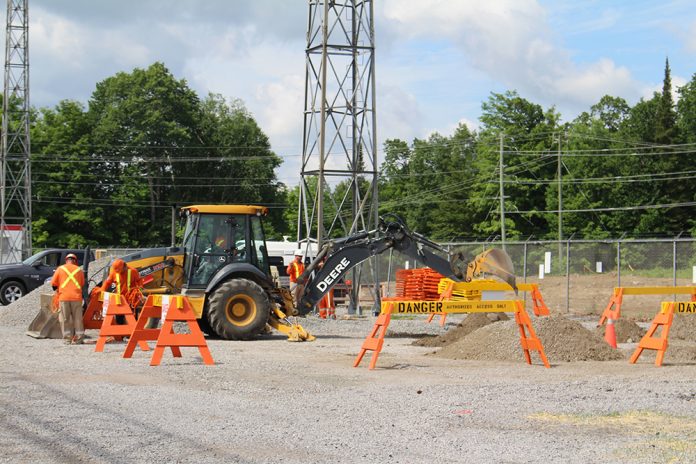Haliburton County’s fastest-growing employment sectors in the past four years include healthcare, applied sciences and finance-related occupations.
That’s according to data in the newlyreleased Workforce Development Board’s (WBD) 2021-2022 Local Labour Market Planning Report.
Between 2017 and 2021, the WDB said Haliburton County lost 86 jobs in the sales and service sector, but gained 43 jobs back in 2021. The WDB, which provides workplace development services in Haliburton, Northumberland, Peterborough and Lindsay, said Haliburton’s job market indicates a “modest recovery.”
Staff shortages topped the list of worries for most County employers the WDB surveyed.
Out of 24 businesses, nearly all reported they’re actively hiring. “We tend to hear a lot from employers that they struggle to find the right workers,” WDB analyst Sean Dooley said.
Those surveyed said possible reasons for the shortage include abuse of federal or provincial income supports, fear of getting COVID-19, resignations, retirements, affordability of housing, and lack of public transportation in the County.
Employers indicated the top skills lacking in job applicants in the area were customer service, communication, financial literacy, problem-solving, time management, work ethic, basic trades and organizational skills.
Besides a lack of employees, the local accommodation and food service industry saw a 238 person decline in its workforce between 2017 and 2021 the retail industry lost 46 people.
That’s despite population growth that was recently recorded as one of the highest in Canada in the same time period.
The WBD said some businesses suggested, “secondary schools in the area could expand their career planning courses to include the developmental services field, local government opportunities, more co-op and hands-on training, especially in the trades and paths to local employment.”
Overall, however, the report estimates a 3.2 per cent growth rate for Haliburton County jobs, with an estimated 151 new positions added year over year. Ontario recorded a 5.7 per cent employment growth rate in 2021.
Certain sectors flourish
Nicole Baumgartner of RE/MAX said the past few years have “been like nothing [she’s] ever experienced.” The explosion of interest in Haliburton County houses is reflected in the growth of the real estate sector.
Since 2017, real estate, along with construction-related firms, has been the fastest-growing business type in the County.
Fourteen new firms have sprung up since June 2017.
Baumgartner said she relishes the chance to showcase the community she loves to newcomers, and the job means she “has her finger on the pulse” of the community. A red-hot housing market means there are opportunities for new realtors, she said. “I think there’s a need for more skilled professionals but understand that it’s a lifestyle. You don’t get to turn off your phone, turn off your computer, at night,” Baumgartner said.
The WDB estimates the real estate industry will grow by 9.3 per cent by 2024, the highest growth projection of any industry in the Highlands. However, as far as individual jobs available, Haliburton’s healthcare sector topped the list. Since 2017, the WDB estimates there were 98 new healthcare-related jobs created in the County.
Previously, this article mistakenly said Nicole Baumgartner was a realtor with Century21 real estate. She is an agent with RE/MAX. The Highlander regrets the error.





